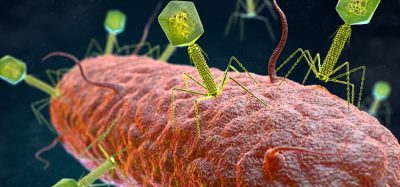New insights into how genetic factors affect body’s immune response in type 1 diabetes
Posted: 9 June 2022 | Ria Kakkad (Drug Target Review) | No comments yet
The new study highlights 11 genes which could be considered as potential candidates for novel therapeutics for type 1 diabetes.


A study recently published in eLife has found evidence of a direct link between genetic factors associated with susceptibility to type 1 diabetes and immune functionality, particularly involving immune T cells. They also highlight 11 genes which could be explored as potential candidates for new treatments. The research team consisted of scientists from University Medical Center Groningen, Radboud University Medical Center, both from the Netherlands, and the Helmholtz Centre for Infection Research, Germany.
“To characterise the body’s immune response in type 1 diabetes, we need to look at both the proportion of immune cells and their production of proteins – cytokines – that stimulate the immune system,” explained co-first author, Xiaojing Chu. “In our study, we explored how genetic factors affect immune cells and their cytokine production in people with type 1 diabetes, as well as the differences between the immune response in patients and a healthy response.”
To do this, the researchers collected blood samples from 243 volunteers of Dutch descent with type 1 diabetes, aged 20–84 years old. They then applied a technique called genetic association analysis on more than 200 immune cell traits and more than 100 cytokine production profiles to identify genetic determinants of immune functionality. They compared the results to those obtained in a group of 500 healthy individuals from previous studies that characterised the impact of genetic factors on immune responses in these individuals.
Their analyses showed that genetic variants determining susceptibility to type 1 diabetes significantly affect T-cell composition. Specifically, a group of these cells, called CCR5+ regulatory T cells, was actively involved in type 1 diabetes through an area of the genome called the constrained coding region.
Missed our exclusive article on the importance of diverse and inclusive samples in genomic studies?
READ IT HERE
The team then used a technique called genome-wide quantitative trait loci (QTL) mapping to analyse immune traits. This revealed 15 genetic ‘commands’ that influence the behaviour of immune cells in type 1 diabetes. Of these, 12 have not previously been reported in healthy people, implying a disease-specific genetic regulation. Additionally, the team identified 11 genes as potential candidates for drug development.
“Our findings provide a deeper understanding of the immune mechanisms involved in the development of type 1 diabetes and that affect the general inflammatory response in patients. We hope this work will open up new avenues for the development of much-needed treatments,” concluded co-senior author, Professor Yang Li.
Related topics
Disease Research, Genetic Analysis, Genomics
Related conditions
type 1 diabetes
Related organisations
Helmholtz Centre for Infection Research, Radboud University Medical Center, University Medical Center Groningen
Related people
Professor Yang Li, Xiaojing Chu







